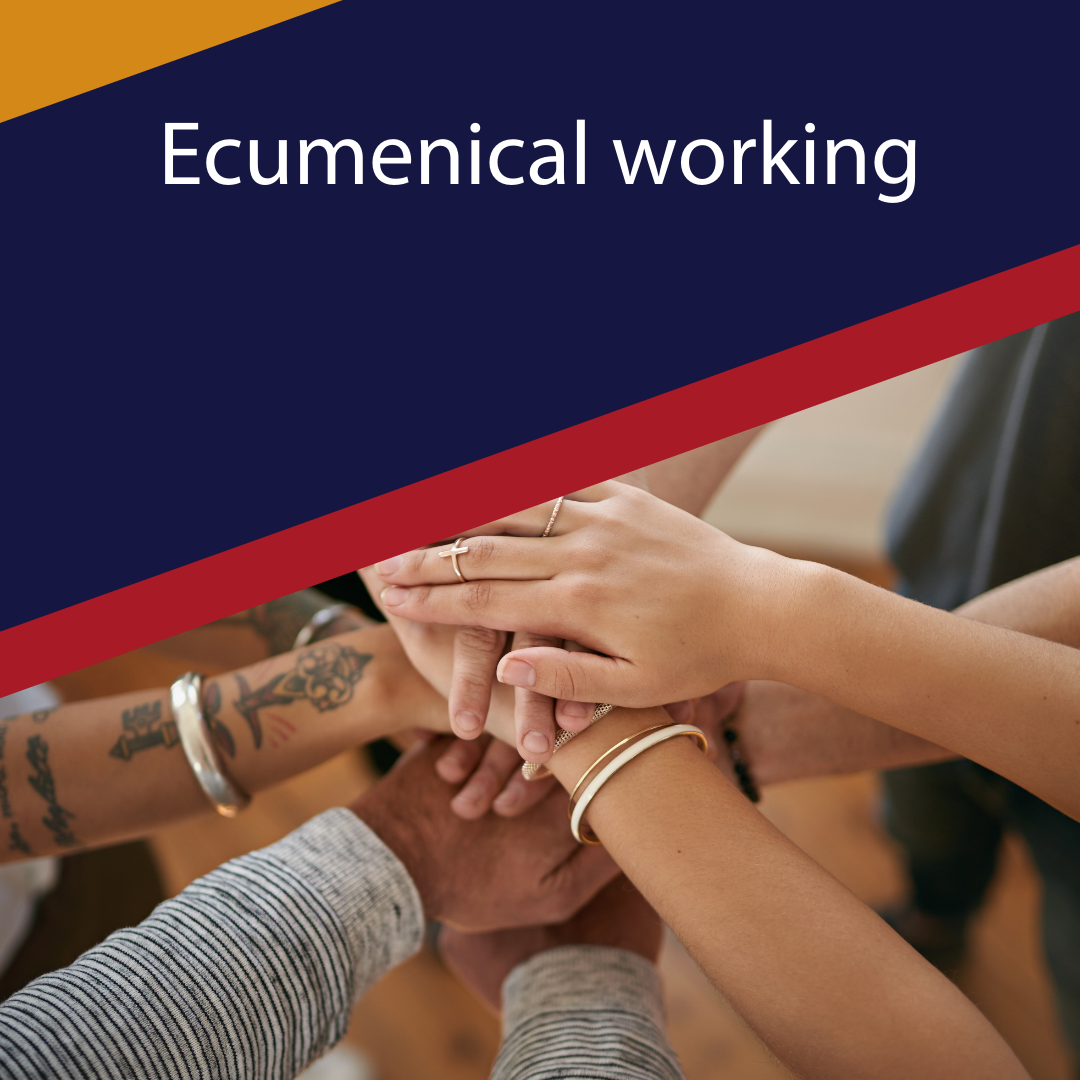 Contacts, links and information about working collaboratively with other Christian denominations.
Contacts, links and information about working collaboratively with other Christian denominations.
The Anglican Church encourages relationships between local churches of different traditions. In most places, a great deal of goodwill may already exist between congregations - Methodist, Roman Catholics, Baptists - along with varying levels of informal contact.
Having strong and positive relations between local churches can offer wider opportunities to serve communities. Local churches can share their mission, resources, worship, buildings and ministry. Much of this can be done informally. However, Canon Law provides a framework that encourages the formalising of local agreements. These are known as Local Ecumenical Partnerships.
The County Ecumenical Officer is the Revd Sarah Gower.
The Diocese of Ely is a member of Cambridgeshire Ecumenical Council, the forum for co-ordination of Ecumenical Work in Cambridgeshire and West Norfolk and for the oversight of Local Ecumenical Partnerships. Our ecumenical link Diocese is the Diocese of Vellore in the Church of South India and you can learn more about ecumenical working on the Churches Together in England website.
Local Ecumenical Partnerships
Local Ecumenical Partnerships (LEPs) are mission communities where there has been a formal agreement between different Christian denominations to co-operate in mission and ministry in a local area. There are different types of LEP present in Cambridgeshire and West Norfolk. These include:
1. Single congregation partnerships, where different denominations have come together to form one single worshipping community, such as:
- Bar Hill
- Christ the Redeemer, East Barnwell, Cambridge
- St Luke, Cambridge
- Cambourne
- Hampton
- Stukeley Meadows, Huntingdon
- Orton Goldhay
2. Congregations in covenanted partnership, where churches of different denominations retain their separate identities but work and worship together:
- Toft
- Whittlesford and Pampisford